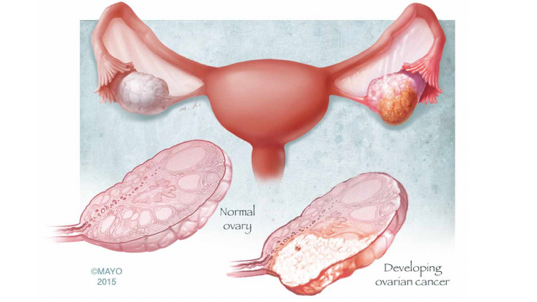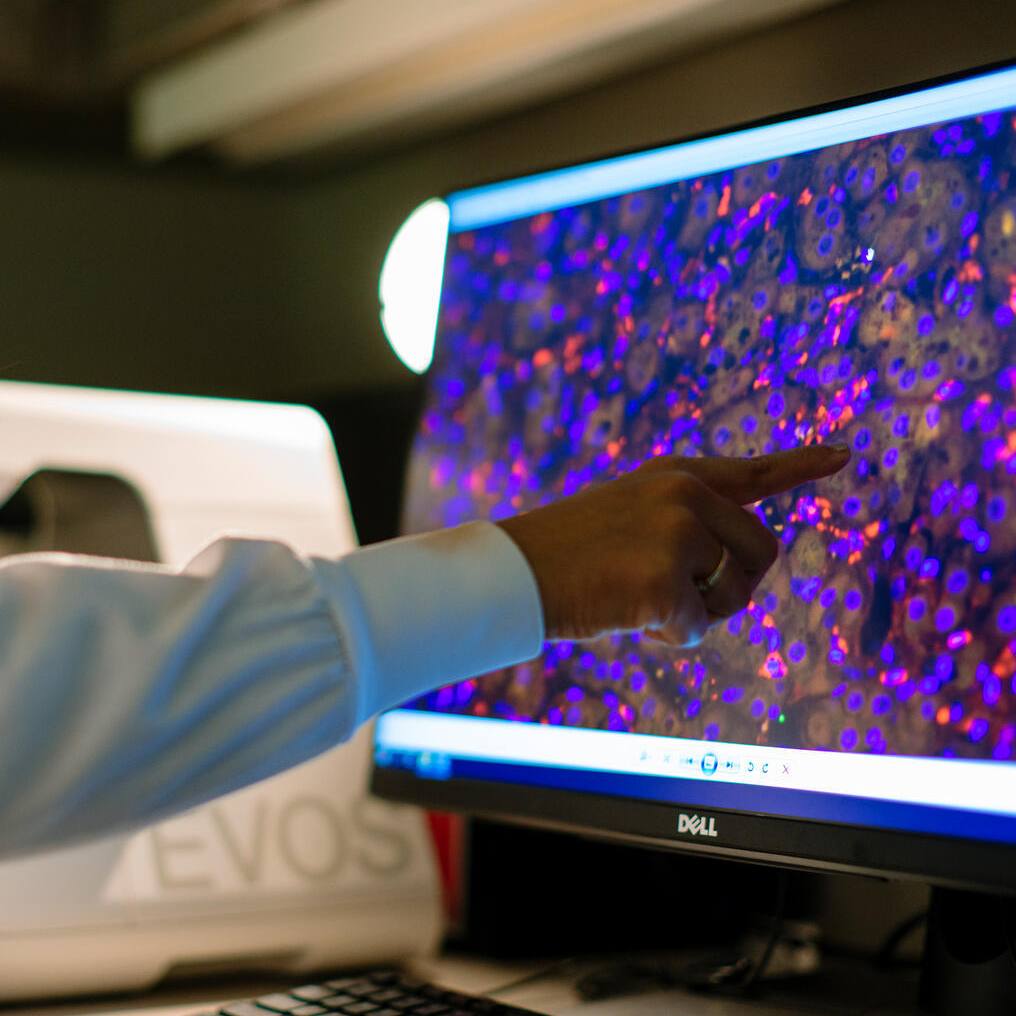-
Women’s Wellness: Some answers about ovarian cancer
 Ovarian cancer vaccine: Can it prevent recurrence?
Ovarian cancer vaccine: Can it prevent recurrence?
Health care providers don't know yet whether the vaccines being developed will work. Research continues in the development of a number of vaccines designed to prevent the recurrence of ovarian cancer. Ovarian cancer vaccines are available only in clinical trials.
Ovarian cancer vaccines are a type of immunotherapy, which is treatment that harnesses the body's germ-fighting immune system to attack cancer cells. Researchers hope to use ovarian vaccines to train the immune system cells to detect and attack any cancer cells that reappear after initial treatment has been completed.
Surgery followed by chemotherapy remains the standard primary treatment for ovarian cancer. Researchers also are studying how cancer vaccines are best used in combination with chemotherapy and other treatments, including other immunotherapies.
Although research has shown that ovarian cancer vaccines may hold promise, these studies have involved only small numbers of participants. More and larger studies are needed to further evaluate the potential role that vaccines may play in preventing recurrent ovarian cancer.
If you're interested in participating in a clinical trial studying ovarian cancer vaccines, discuss it with your health care provider. He or she can help you evaluate the options and determine whether a clinical trial is appropriate for your specific situation.
 Ovarian cancer: Still possible after hysterectomy?
Ovarian cancer: Still possible after hysterectomy?
Surgery to remove your ovaries dramatically reduces your risk of ovarian cancer, but it doesn't eliminate the risk entirely.
You still have a risk of ovarian cancer or a type of cancer that acts just like it (primary peritoneal cancer) if you've had a hysterectomy.
Your risk depends on the type of hysterectomy you had:
- Partial hysterectomy or total hysterectomy.
A partial hysterectomy removes your uterus, and a total hysterectomy removes your uterus and your cervix. Both procedures leave your ovaries intact, so you can still develop ovarian cancer. - Total hysterectomy with salpingo-oophorectomy.
This procedure removes your cervix and uterus as well as both ovaries and fallopian tubes. This makes ovarian cancer less likely to occur, but it does not remove all risk.
You still have a small risk of what's called primary peritoneal cancer. The peritoneum is a covering that lines the abdominal organs, and is close to the ovaries. Since the peritoneum and ovaries arise from the same tissues during embryonic development, it's possible that cancer could result from the cells of the peritoneum.
Currently, there are no effective screening tests for ovarian cancer in women with an average risk of the disease. If you're concerned about your risk, discuss your options with your health care provider.
Written by Dr. Yvonne Butler Tobah and Mayo Clinic staff.
Find more health and medical information on mayoclinic.org.
Related posts:
- Ovarian cancer is hard to detect
- Living With Cancer: Understanding ovarian cancer
- Women’s Wellness: Is endometriosis a risk factor for ovarian cancer?








